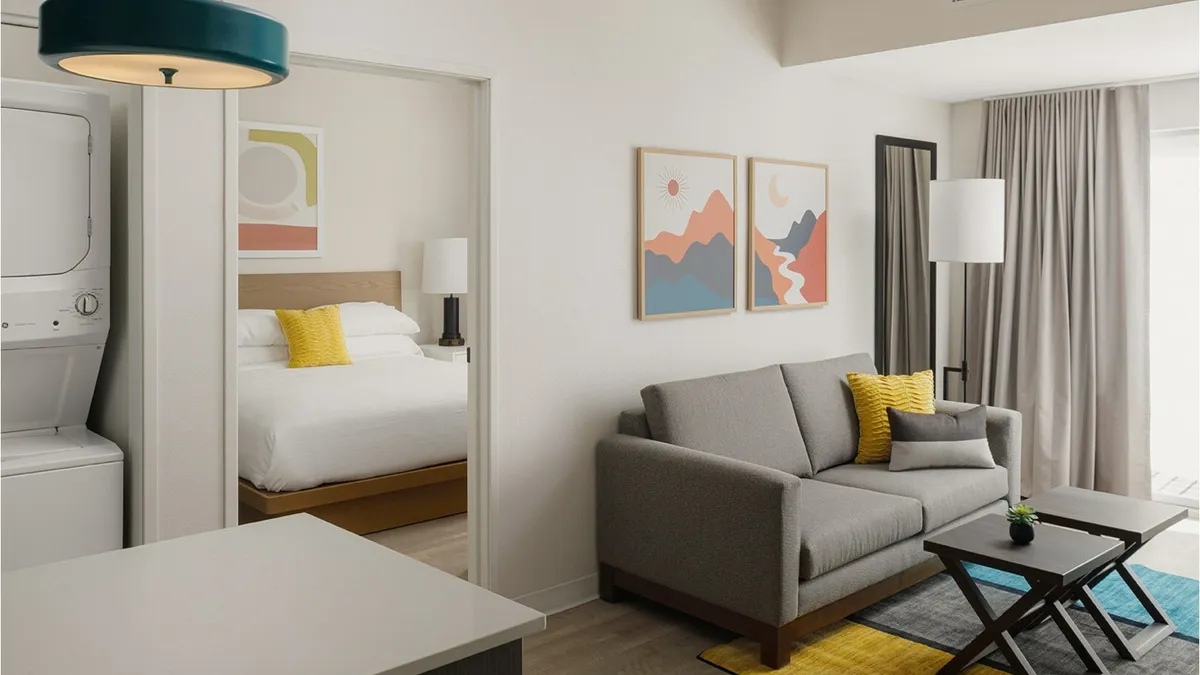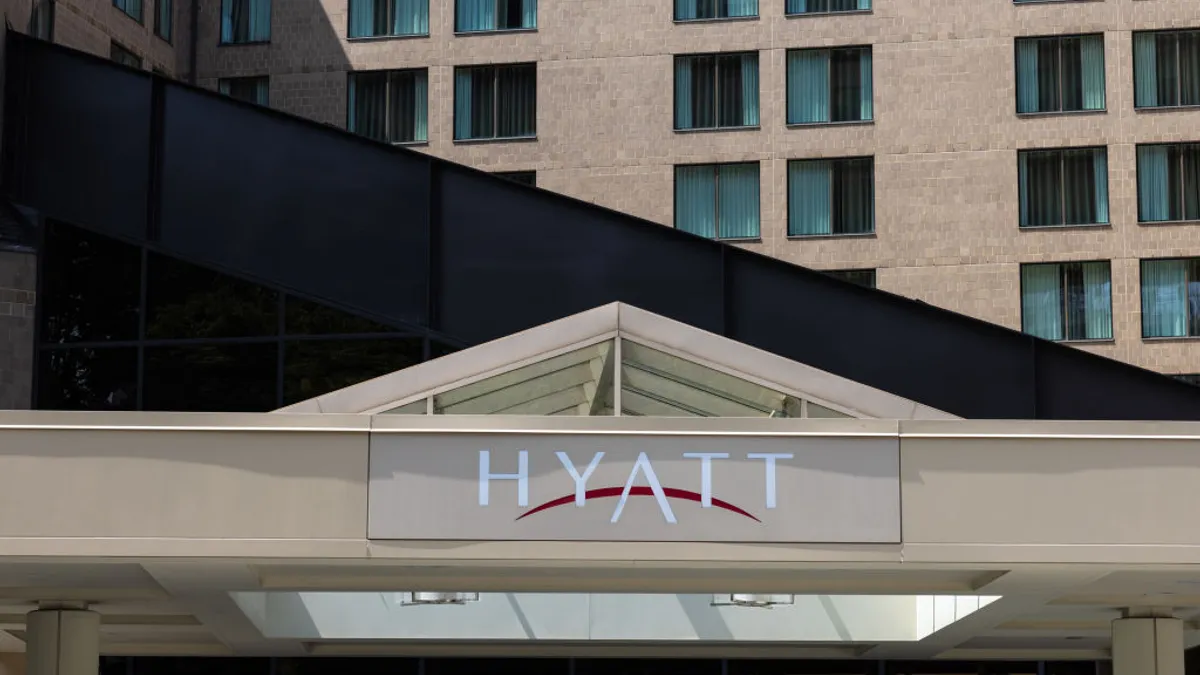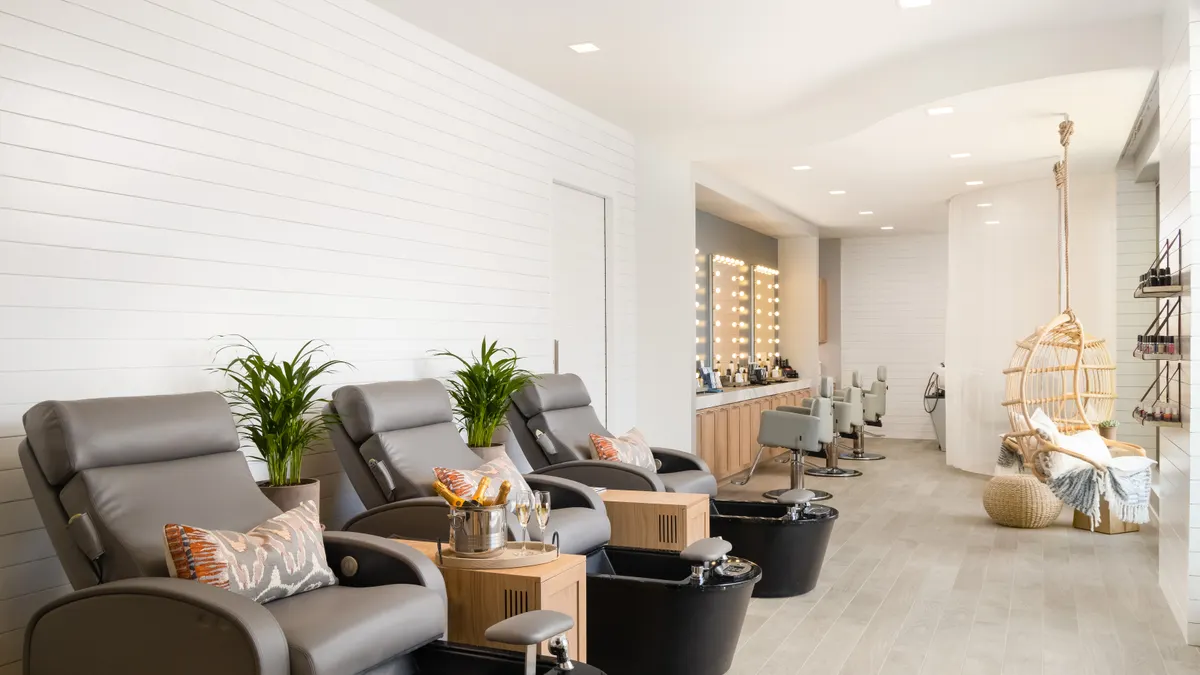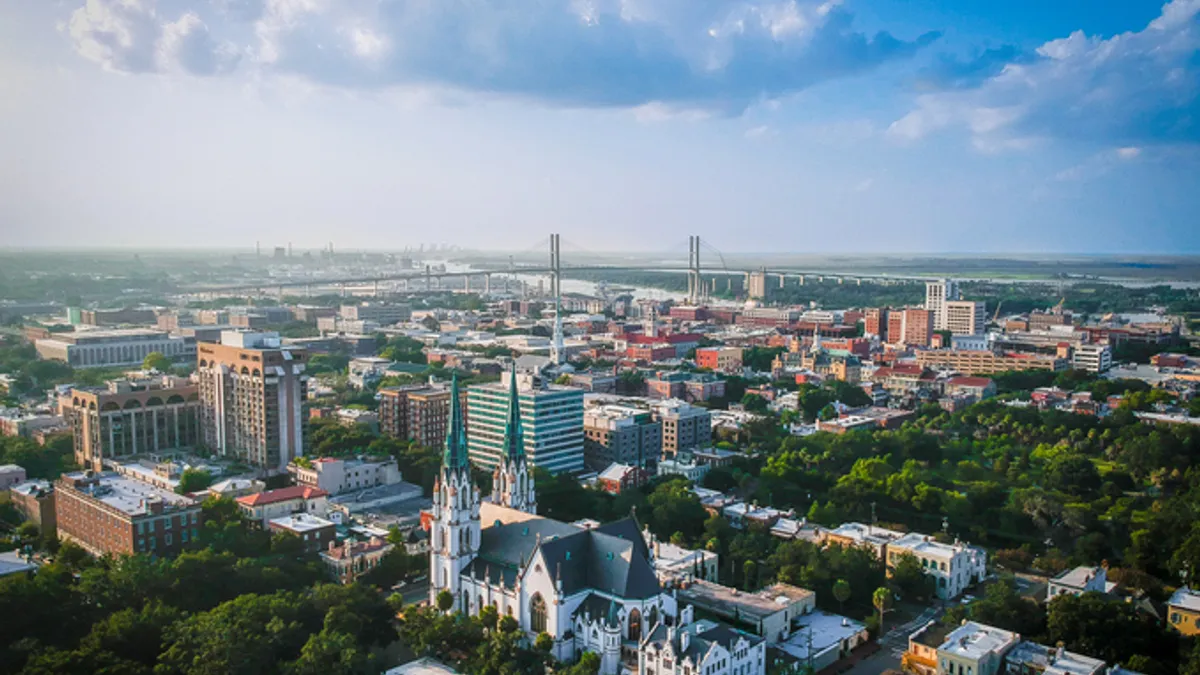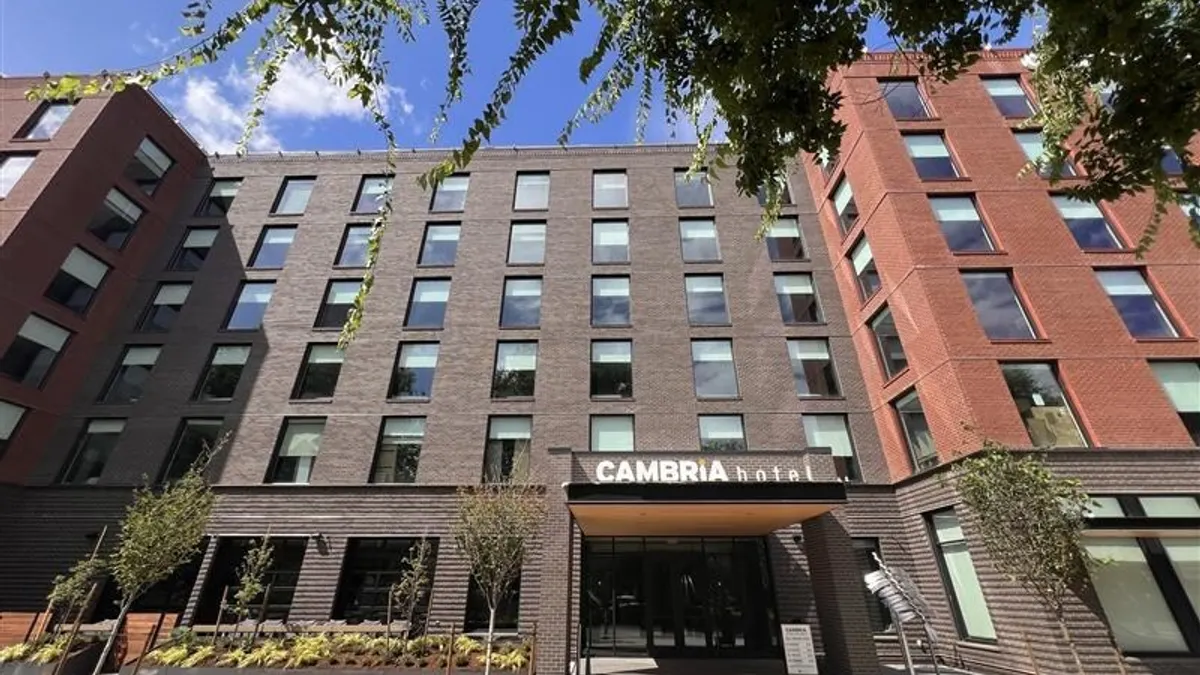Extended stay is, well, here to stay.
Despite economic challenges like high interest rates and staffing shortages that continue to impact the hotel industry, the extended stay hotel model is on a high growth trajectory bolstered by brand launches, development deals and investment activity nationwide.
Guests continue to demand accommodations in the category as well, with trades workers, business travelers and even college students turning to the longer-term lodging option.
The product type has seemed to defy modern industry woes with its operational efficiencies, high revenue margins and growing guest base — meaning the future looks bright for investors and developers trying to break into the space, hospitality experts told Hotel Dive.
Industry pros shared what’s next for the growing segment, including the markets and brands to watch this year.
Product type perks
Extended stay continues to proliferate in the hotel industry, with the product type dominating the U.S. hotel construction pipeline in the first quarter of this year.
“They're what investors are gravitating to. There's a lot less risk, a lot less capital required, they are faster to cash flow, and, essentially, it's a stronger revenue stream for the investor.

Ned Washburn
director of RREAF Holdings’ extended stay program
According to Lodging Econometrics, extended stay brands accounted for 37% of the total projects under construction in Q1. They also made up 41% of projects scheduled to begin within the next 12 months and 39% of projects in the early planning stage in the quarter.
Extended stay hotels offer “numerous advantages over traditional short-stay hotels,” Ned Washburn, director of real estate company RREAF Holdings’ extended stay program, told Hotel Dive.
Extended stay hotels are quick-build products that can be up in 12 months and reach stabilization in six to eight. This means “cash flowing for investors quicker than your typical hotel or other types of development,” according to Washburn.
Investors also like extended stay because of the “operational efficiency of the model,” Washburn said. Extended stay hotels typically operate anywhere from six to 10 full-time employees, which is “significantly lower than [the] traditional full-service or select-service hotels,” producing gross profit margins “as high as 60%,” he added.
Washburn called the product type the hotel industry’s “belle of the ball.”
“They're what investors are gravitating to,” he added. “There's a lot less risk, a lot less capital required, they are faster to cash flow, and, essentially, it's a stronger revenue stream for the investor.”
The product type is “what kept the construction business in play, because with rising construction costs, you have to have rising revenue to make up for that,” Washburn said.
Developers and investors also continue to turn to extended stay because the hotel type is highly demanded by a growing guest base, including leisure travelers, business professionals and even college students, Washburn said.
Growing guest demand
According to Washburn, the typical extended stay customer is traveling for business, including consultants, traveling nurses and relocating employees.
Paul Duncan, the development leader behind extended stay brand LivAway Suites, told Hotel Dive last month that the chain sees significant interest from relocating employees as well as “digital nomads” who travel while working remotely.
Student housing has become extremely expensive, so sometimes economy extended stays cater to them.

Ned Washburn
director of RREAF Holdings’ extended stay program
John Harrington, principal and founding partner at HKS Real Estate Advisors, told Hotel Dive that extended stay demand has increased following the pandemic because of how people’s work preferences have changed, leading some employees to work remotely while traveling.
The extended stay guest goes beyond corporate travelers, though. Duncan said guest demand at LivAway also comes from construction workers for major infrastructure projects, many of which are underway after the Biden administration passed a $1.2 trillion infrastructure bill in 2021.
LivAway Suites has begun locating near these ongoing projects to cater to increased worker demand. RREAF has similarly started building extended stay hotels near microchip and electric vehicle plants, Washburn noted.
Meanwhile, college students are turning to extended stay for an affordable “housing” option, Washburn said. For some, the hotels are used like “a hybrid between hotel and multifamily,” he added.
“Student housing has become extremely expensive, so sometimes economy extended stays cater to them,” Washburn said, adding that traveling professors at universities also turn to the lodging option.
Despite the fact that many groups use extended stay hotels as a means for short-term housing, Washburn does not see the hotels becoming a “long-term alternative to multifamily.”
The leading markets for extended stay development and investment this year will be college towns and markets with prominent medical, manufacturing or logistics facilities, Washburn noted.
He said RREAF is particularly targeting the Sun Belt and southeastern states for extended stay projects. Other extended stay developers and investors have also recently targeted the region, claiming it boasts strong population and job growth fundamentals.
Jacksonville, Florida-based real estate development firm Rimrock Companies is developing several My Place extended stay hotels across Tennessee, South Carolina and Georgia, while Atlanta-based Noble Investment Group recently acquired a 10-property extended stay portfolio spanning Florida, Georgia, South Carolina, Tennessee and Kentucky.
Burgeoning brands
Hotel companies are taking note of the continued demand for extended stay and launching or expanding existing brands in the space.
According to Washburn, extended stay brands to watch this year are Extended Stay America, Hilton’s LivSmart Studios, Hyatt Studios, Wyndham’s Echo Suites and Marriott’s StudioRes.
LivSmart Studios, Hyatt Studios and StudioRes all launched in 2023 and are set to see pipeline growth this year. Smaller economy segment brand LivAway Suites similarly launched last year and is on track for significant expansion, with the goal of having 50 hotels under construction or open by 2026.
Wyndham’s Echo Suites, which launched in 2022, is also rapidly expanding. The hotel company inked 98 development contracts for the brand in 2023. Wyndham also entered the upscale extended stay segment last month through a strategic partnership with WaterWalk.
And Choice Hotels International is in the extended stay arena as well, growing its brands WoodSpring Suites and Everhome Suites. Everhome has roughly 70 properties in the pipeline.



